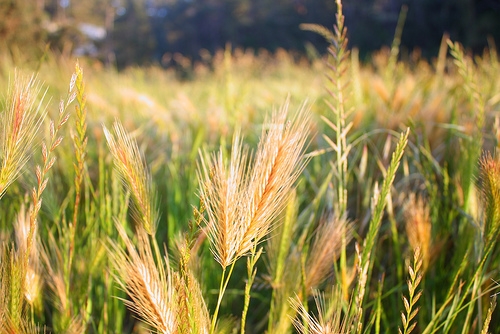16th Sunday in Ordinary Time (Cycle A)

Wis 12:13. 16-19
Ps 86:5-6. 9-10. 15-16
Rom 8:26-27
Mt. 13:24-43
Last Sunday we focused on planting seeds while this Sunday we will be talking about pulling weeds. The two go together. As a gardener, I know so well that it is much easier to plant seeds than pulling the weeds—and much more time-consuming and a harder work. It is difficult to distinguish between the wheat and the weeds. They look so much alike. To make things easier someone suggests a stress-free way: “To distinguish valuable plants from weeds, simply pull up everything. What grows back is weeds.”
The Gospel reading also reminds me of what an unknown homemaker once shared: “I don’t clean windows because . . . I love birds and don’t want one to run into a clean window and get hurt. I don’t wax floors because . . . I am terrified a guest will slip and get hurt then I’ll feel terrible (plus they may sue me.) I don’t disturb cobwebs because . . . I want every creature to have a home of their own. I don’t Spring Clean because . . . I love all the seasons and don’t want the others to get jealous. I don’t put things away because . . . my husband will never be able to find them again. I don’t do gourmet meals when I entertain because . . . I don’t want my guests to stress out over what to make when they invite me over for dinner. I don’t iron because . . . I choose to believe them when they say “Permanent Press.” And finally: I don’t pull weeds in the garden because . . . I don’t want to get in God’s way, He is an excellent designer!”
The parable is addressed to those who are scandalized today because the Church contains so many bad weeds, hypocrites, people who are with us in the church, in our workplaces, in our homes and even in religious houses whose lives are not consistent with their Christian values and religious life.
The servants who went to the master to report the presence of bad and evil weeds growing among the wheat would have expected that the master would complement them for being so vigilant as to notice the weeds. And at times, too, you would expect the master to support you in your plan to root out the weeds–the bad guys. You would expect signs of approval. But wait!
The master shocked and disappointed the servants when the master told them to let the weeds grow along side with the weeds. As any good farmer knows, it makes sense to root out the weeds in order to increase the yield and maximize profit. Why then does the master restrained the farmers to pull out the weeds?
Why he does that? The last verse of the first reading gives us two reasons why God acts this way. In the first place, He does it to teach us that we have to love all people, not just the good ones. In the second place, He wants to give sinners the possibility and the chance to be converted. God is patient with the sinner. And in the Gospel He restrains them “lest gathering the weeds you root up the wheat along with them” (Mt 13:29).
The message of today’s gospel is loud and clear: If you want to be a faithful servant of Christ, you must be prepared be patient with those you perceive as evil persons. To God alone belongs judgment. Let them grow together until the harvest, the Lord tells us in the gospel.
In effect, Jesus is teaching us that when God (personified by the owner) allows the weeds and the wheat to grow together, he is not saying that he cannot do anything about evil. Rather, he wants both the weeds and the wheat—the bad and the good—because he wants the conversion of sinners and not their death. He does not love only the just and the good; he loves all, even the wicked, because they too are his creatures AND THE ONLY THING HE WANTS IS THAT THEY CHANGE THEIR LIVES!
We might find this hard to accept since we often think that we are the good guys and others are the bad guys. But all we have to do is to look deep in our hearts to discover how wrong we are. In our hearts, as in the hearts of others, we also find anger, resentment, pride, envy, revenge, ill-feelings… and more!
